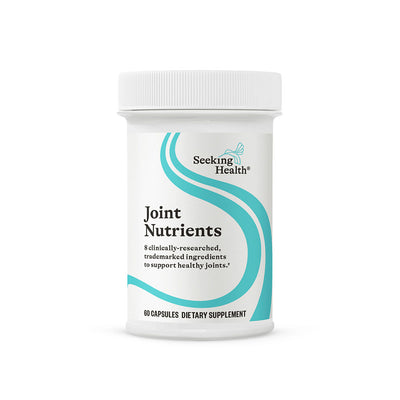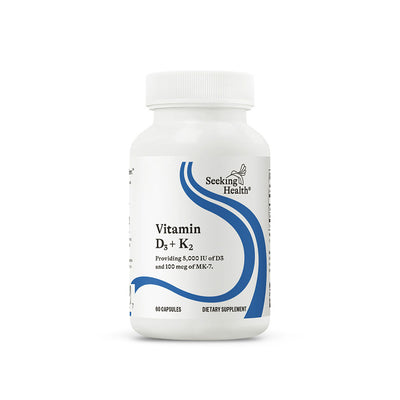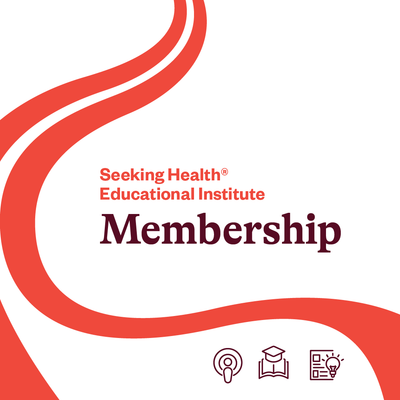Have you ever asked yourself, “Why am I so tired?”
According to the Centers for Disease Control and Prevention (CDC), two out of every five Americans report feeling exhausted most days of the week.(1)
However, if you are still tired and fatigued all the time, even when you get enough sleep and proper rest, then it’s something to think more about.
When you feel exhausted, you have no energy, lack motivation, have a poor mood, can’t focus on solving problems, and are at a high risk of making errors.
Why does this happen? Here are 11 sneaky reasons for exhaustion you may never have thought of.

Mouth breathing
When it comes to your health, the way you breathe is as important as your food and nutrition intake.
Mouth breathing can put you at risk of sleep disorders, including sleep apnea, snoring, and hypopnea. (2)
This is because when you mouth-breathe, up to six times the volume of air enters the lungs and respiratory system. This can wreak havoc on the delicate biochemical balance that affects how our cells get oxygen for boosting energy.
As a result, you can’t sleep through the night, in turn resulting in daytime fatigue.
Moreover, if you sleep with your mouth open, chances are that your body will produce more energy than the body needs, making you tired more quickly.
Fortunately, you can change that by practicing nasal breathing.
Breathing through your nose helps release nitric oxide. Nitric oxide is a vasodilator, meaning it opens up blood vessels.
This helps improve oxygen delivery to the muscles and organs, giving you more energy to function at your best.
Overeating or undereating
Did you know that it takes about 20 minutes for your brain to tell your stomach that you’re already full?
Once you eat beyond normal fullness, it means you are overeating.
When you overeat, your stomach expands from its normal size to accommodate more food. Organs get pushed aside, making you feel uncomfortable, tired, and drowsy.
Moreover, when you eat too much, your organs need to work harder to secrete enzymes and hormones to break down the food you just ate.
As a result, you feel tired.
On the other hand, if you are undereating, you are consuming fewer calories than your body needs to function optimally.
This can affect your energy levels, leading to chronic fatigue and tiredness throughout the day.
In fact, according to the Journal of Nutrients, eating too few or too many calories can impact sports performance and physical fitness in athletes. (3)
Therefore, you need to eat a well-balanced diet to have the energy you need to tackle the day.
Anemia
If you have iron deficiency anemia, chances are that you are always feeling tired and exhausted.
This is because your body does not have high enough iron levels to produce hemoglobin.
Hemoglobin is a type of protein necessary to deliver and carry oxygen around the body.
With low hemoglobin levels, your muscles and tissues don’t have the energy to produce enough oxygen.
This deprives you and your organs of enough energy to function, which also contributes to your tiredness.
For example, your heart needs to work doubly hard to send oxygen-rich blood around your body.
Therefore, eat foods rich in iron such as red meat, nuts, and liver.
Alternatively, you can take B12 or folate vitamins, such as a Hydroxo B12 with Folinic Acid lozenge, to support healthy energy levels and mood.†
Moreover, Hydroxo B12 with Folinic Acid also supports healthy blood cells, healthy energy production, mental clarity, and methylation.†
Chemical exposure
According to the United States Environmental Protection Agency, indoor air, such as in homes, offices, malls, and other enclosed buildings, can put your life at risk.
In fact, the World Health Organization reported that household air pollution is one of the major reasons for 3.2 million deaths in 2020.
This indoor air pollution comes from chemical toxins that release unhealthy particles and gasses into the air, which may lead to fatigue, asthma, and sickness over time.
Some of these toxins that we’re exposed to are formaldehyde from new furniture and clothes, chlorine from pools, hot tubs, and drinking water, and exhaust fumes from cars, fireplaces, airplanes, and generators.
We are also exposed to arsenic from chicken and rice, mercury from fish and amalgams, hydrogen peroxide from stress and immune system infections, and smoke from pipes, cigarettes, and vapes.
The best way to deal with this is to identify the trigger and eliminate it.
To support your body's healthy response to indoor and outdoor toxins, you can use Optimal Glutathione Plus Lozenge from Seeking Health. †
You see, we breathe in more than 11,000 liters of polluted air each day.
Glutathione can support a healthy response to toxins and your body's natural process of eliminating poisons and toxins from the body. †
Being too stationary
Being too sedentary, such as prolonged sitting and lying in bed, can also lead to extreme tiredness.
That’s because the more you sit around, the more your lungs, heart, and muscles are being "deconditioned" – thus, they are not able to function at their best.(4)
The good news is that simply moving around can help condition your organs again so that they work efficiently.
In one study published in Journal Frontiers, people with persistent levels of fatigue experienced a 10% increase in their energy levels after doing 20 minutes of either low- or medium-intensity exercise three times a week for six weeks.(5)
What’s more?
Those who did low-intensity exercises experienced a higher improvement in their fatigue.
This goes to show that you don’t need to go hard during your workout.
Just simple movements alone like walking and climbing stairs can make a major difference to your energy levels and overall health.
Dehydration
One of the reasons you may always be tired is because of dehydration.
According to the National Library of Medicine, those who do not get enough fluids in a day feel extra sluggish and are physically and mentally exhausted.
Similarly, athletes who do not drink enough water report feeling more tired. They also experience weakness in muscle strength and endurance.(6)
Moreover, according to a study from The Journal of Strength & Conditioning Research, 24 hours of dehydration took a toll on the strength and endurance of martial arts athletes.(7)
This goes to show that drinking water, or just about any fluids, is important if we want to stay active during the day.
Therefore, make sure you hydrate daily to prevent the not-so-pleasant symptoms of dehydration.
In one study in the European Journal of Nutrition, women who were more hydrated had better processing speed and attention compared to those who lacked proper hydration.(8)
The Institute of Medicine recommends that you drink from 2.7 to 3.7 liters of water daily.
This water can be from plain drinking water or water-rich foods like soups, vegetables, and fruits.(9)
You can also use Optimal Electrolyte to support healthy electrolytes inside every one of your cells and help with deep hydration.†
Illness
Fatigue is the body’s normal response when fighting illness. This includes ear, lung, dental, and sinus issues.
The feeling of tiredness goes away quickly once the illness is gone.
However, when you still feel exhausted after the illness is gone, there might be underlying causes or maybe a more severe issue — such as Lyme disease, EBV, or HPM — that’s causing it.
In this case, give yourself some time to rest and nourish your body by eating healthy foods and staying well-hydrated.
If your fatigue persists even after this, it’s best to consult your doctor to help alleviate any possible hidden illness.
Reactive hypoglycemia
Carbs are important for energy.
However, if your blood sugar stays too low, it can result in hypoglycemia.
This condition usually happens in people with blood sugar issues. However, it can be possible for anyone, especially if you eat large carb-heavy meals.
If you do, your body produces more insulin, making your blood sugar levels drop below the normal range.
The result? You feel tired and drowsy after a big meal.
To avoid energy crashes after eating your meal, just eat normal amounts of carbs to avoid the sudden drop in blood sugar levels.
If you have blood sugar issues, 70 mg/dL means you’re hypoglycemic.
In this case, eat 15 grams of carbs first. After 15 minutes, check your blood sugar levels again.
If it stays the same, eat another serving. Repeat until your blood sugar is at 70 mg/dL or above.
Poor sleep quality
Getting a good night’s sleep will make you feel well-rested and awake the next morning.
However, if you still feel tired when you wake up, you might be experiencing some issues that affect your sleep and rest.
One reason for this is circadian rhythm disorder.
People who have this problem have difficulty falling and staying asleep. They also have a hard time waking up in the morning due to the misalignment of their body’s biological clock.
As a result, it leads to chronic fatigue.
To help you get a good night’s sleep, practice good sleep hygiene such as sleeping in a cooler room, putting your phone on airplane mode, and turning off your lights and Wi-Fi.
Moreover, avoid watching things on your phone or TV right before bed, as it can lower your melatonin levels.
Melatonin helps improve deep sleep so that you wake up feeling fully rested the next day.
Medications
Your medications can also affect your energy. In fact, one of the common side effects of taking pills is drowsiness.
For example, take antihistamines.
If you take antihistamines due to seasonal allergies, chances are that you will feel sleepy and tired. You may also have reduced coordination and reaction time.(10)
Therefore, it’s best to take a rest once you take antihistamines.
Alternatively, use Histamine Nutrients to support a healthy response to histamine without causing feelings of exhaustion or fatigue. †
Food intolerances
Do you feel like sleeping after eating too much?
This is your body’s way of saying, “I worked hard to digest your food, it’s time to rest now.”
However, if you have food sensitivity, feeling fatigued can happen more often.
This is because your body has to use its energy reserves to manage the food sensitivity, resulting in fatigue.
It’s like you’re fighting off a cold.
Apart from that, the feeling of exhaustion can also be another sign of food sensitivity symptoms, alongside ones such as cramps and IBS.
Moreover, if you have food sensitivity, your body does not absorb all the nutrients from food, thus lowering your energy.
To help you ease the fatigue caused by food sensitivity, not eating the foods you are sensitive to can help.
You can also try the elimination diet, in which you eliminate those foods that cause reactions and find alternatives so that your body still gets the nutrients and energy it needs to function.
The elimination diet has three phases.(11)
Phase 1 is detoxification. This is a 2-day liquid fast that includes smoothies, juices, and broths to help calm your immune system and remove toxins from your body.
Phase 2 is elimination. For 2 weeks, you need to remove foods that cause inflammation so you can ease your symptoms completely.
Phase 3 is customization. For 2 months, you need to try and test new foods until you find ones that will work for your new diet.
For example, if you have an intolerance to potatoes, you can swap this food for yams or sweet corn.
As much as possible, steer clear of ultra-refined foods — such as bread, sugary meals, and heavily processed foods — to avoid energy crashes.
You can also eliminate gluten from your diet to help boost your energy.
This is because gluten can trigger inflammation and damage the gut wall.
Aside from receiving an energy boost, people who give up gluten have reported that they lose weight and have clearer memory.
You may also want to take Histamine Digest to support a healthy response to ingested histamine.†
What to do next
Now that you know the common reasons for exhaustion, it’s time to practice simple habits — such as eating a balanced diet, sleeping well, moving around, and drinking plenty of water, to name a few — to boost your energy so you can tackle the day.
You can also take supplements to support your energy.†
This includes Adrenal Cortex by Seeking Health, as it supports healthy energy levels and normal stress response for optimal well-being . †
It promotes healthy adrenal function and balanced stress responses. †
Moreover, it provides the nutrient building blocks for your adrenals to produce cortisol. Healthy cortisol levels support energy, alertness, immune system function, and glucose metabolism.†
Check out Adrenal Cortex by Seeking Health.
Shop with Seeking Health today!
References
- https://www.cdc.gov/media/releases/2016/p0215-enough-sleep.html
- https://pubmed.ncbi.nlm.nih.gov/9042068/
- http://www.mdpi.com/2072-6643/5/12/5140/htm
- https://www.elsevier.com/__data/assets/pdf_file/0016/1023622/Deconditioning_140520.pdf
- https://www.frontiersin.org/journals/psychology/articles/10.3389/fpsyg.2022.907637/full
- https://www.ncbi.nlm.nih.gov/pmc/articles/PMC6224374/
- https://pubmed.ncbi.nlm.nih.gov/28930879/
- https://www.psu.edu/news/research/story/hydration-may-affect-cognitive-function-some-older-adults/
- https://nap.nationalacademies.org/read/10925/chapter/6#147
- https://www.nhs.uk/conditions/antihistamines/#:~:text=Side%20effects%20of%20antihistamines,machinery%20after%20taking%20these%20antihistamines
- https://amzn.to/42DYTuQ
†
These statements have not been evaluated by the Food and Drug Administration (FDA). This product is not intended to diagnose, treat, cure, or prevent any disease.











